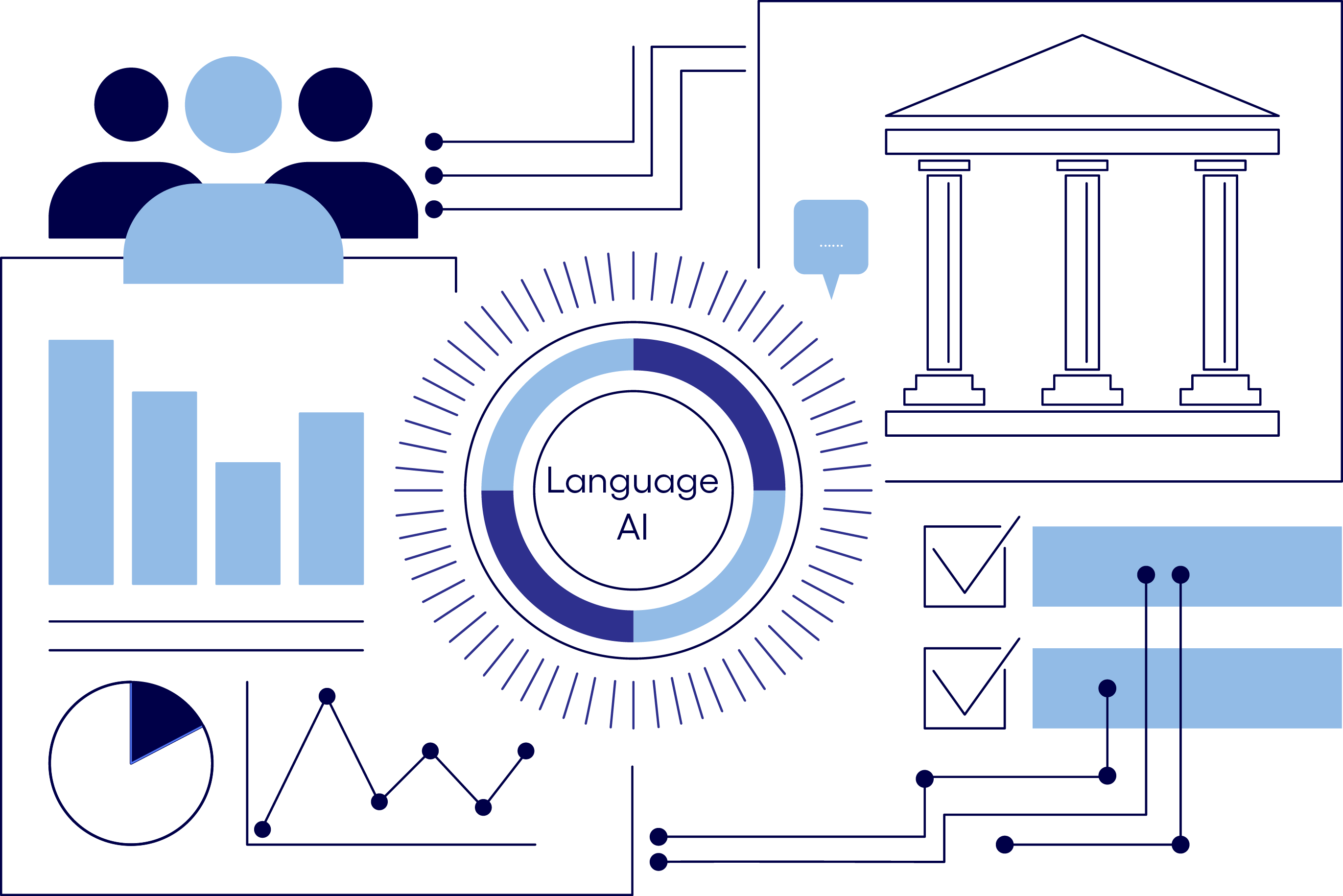AI and the future of consulting: How NLP is reshaping work with public and regulatory clients
Natural language processing tools like ChatGPT are evolving quickly. Their influence now goes far beyond content creation or search. Increasingly, they are transforming high-value consulting engagements, especially in the complex world of public and regulatory work.
Government institutions and regulators are under pressure. They face growing scrutiny, tighter budgets, and rising public expectations. To keep up, they need to work with more transparency, speed, and focus. Consulting firms can help but that requires a new approach. NLP is becoming a key part of that shift.
From data collection to faster, smarter insights
Consulting work in this space still involves large amounts of unstructured information. This includes legal texts, policy documents, stakeholder input, and regulatory filings. Reviewing this content manually used to take hours, sometimes weeks, before strategic work could even begin. That is changing. The European Commission’s Joint Research Centre, for example, uses NLP to process and summarize policy content from across the EU. These tools help reduce manual effort and speed up legislative alignment. Time savings matter. But the real benefit is how NLP allows consulting teams to move more quickly toward consensus and better decisions. The result is more agile and relevant outcomes, supported by real-time insights.
Improving communication and policy co-design
Public and regulatory work is not just about rules. It is about people. One of the biggest challenges is making sense of diverse views in a way that is fast, open, and fair. NLP helps with that. It analyzes input from public hearings, surveys, online platforms, and social media. It surfaces themes, detects sentiment shifts, and flags unusual concerns. What once took weeks now takes hours. A good example is the US Environmental Protection Agency. It uses NLP to analyze tens of thousands of public comments on proposed regulations. This helps the agency find patterns, improve communication, and respond more clearly to public needs.
No matter the country or context, the value is the same. NLP gives consulting teams a scalable, data-driven way to include the public voice in policy development.
What this means for the consulting model
AI is getting better at understanding complex information and spotting trends. This is changing how consulting works. But the goal is not to replace people. It is to let them focus on where they add the most value. Less time spent collecting data. More time spent framing options, assessing risks, and guiding decisions. These human skills remain essential, especially in public sector reform and regulatory innovation.
In places like Germany, where digital sovereignty and agile governance matter, this shift is even more relevant. NLP is not just a technical feature. It is part of how consulting shapes a smarter public sector.
Deliverables that evolve with the client
Consulting outputs are changing too. Static reports are giving way to live tools that evolve with the client’s needs.
Examples include:
Language models trained on national or EU policy that offer instant answers to legal questions
Dashboards that track media sentiment and public response in real time
Briefing notes that automatically adjust based on the reader’s role or region
These are not just documents. They are working tools for ongoing collaboration and decision-making.
















